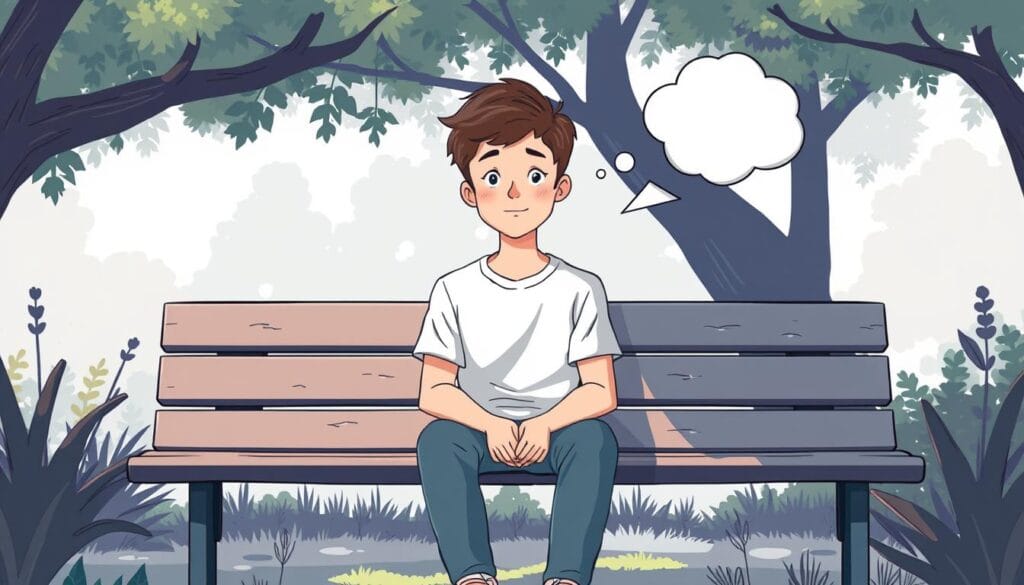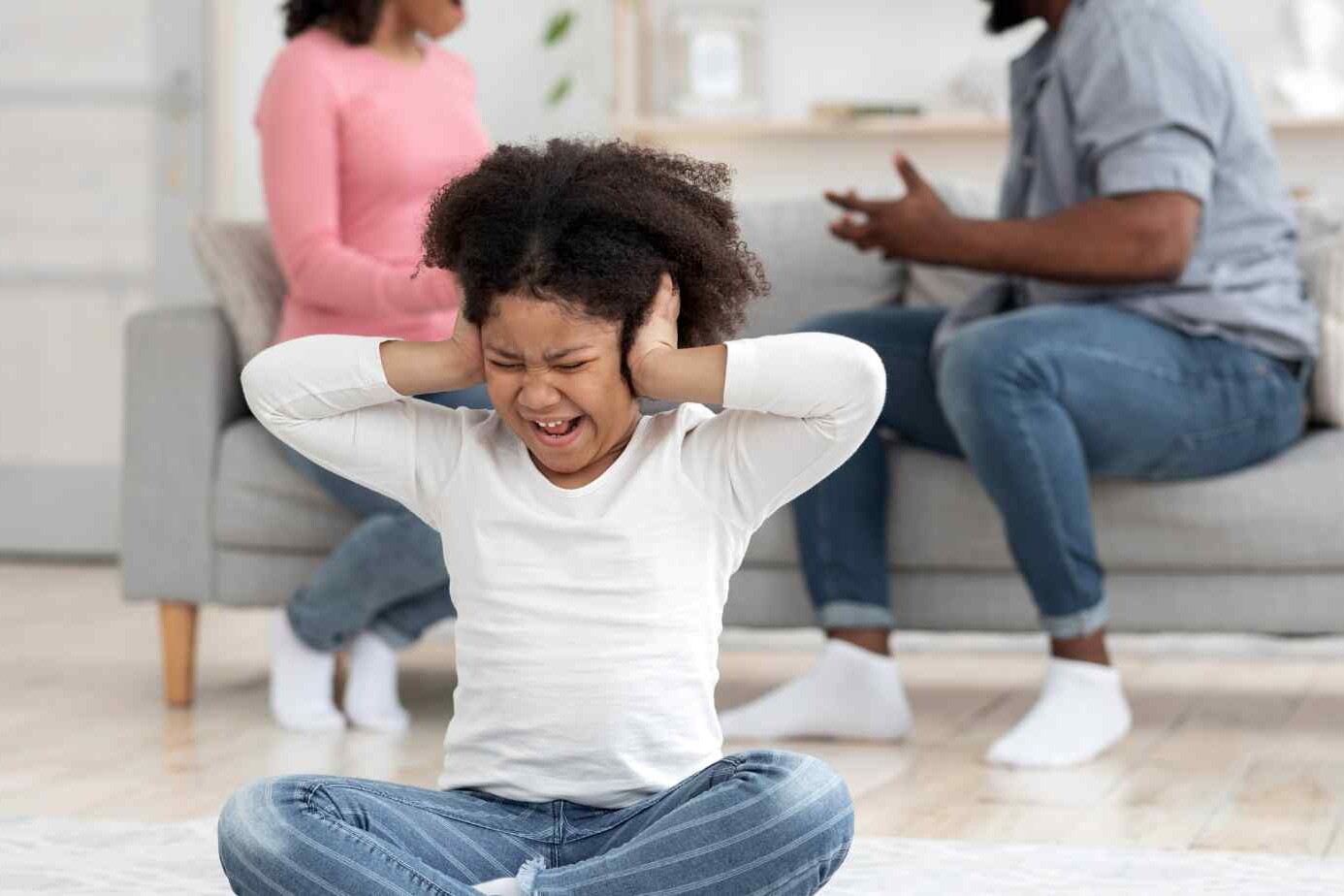Young adulthood is a tough time for mental health. But, with the right help, you can get through it. Around the world, one in seven teens, aged 10 to 19, has a mental disorder. This makes up 13% of all diseases in this age group.
Depression, anxiety, and behavioral issues are big problems for teens. They are the top causes of illness and disability. Suicide is the fourth leading cause of death for those aged 15 to 29.
It’s important to protect teens from hard times. We should teach them about feelings and make sure they can get mental health care. We need to focus on the mental health issues young adults face and find ways to help them stay well.
Table of Contents
ToggleIntroduction to Mental Health Challenges in Young Adulthood
Young adulthood is from ages 16 to 24. It’s a time of big changes in physical, emotional, and social lives. This stage is both exciting and stressful, making young adults more likely to face mental health issues.
Unique Developmental Period of Transition
Going to college, starting a career, and making close friends are big steps. These experiences are thrilling but also bring a lot of uncertainty and pressure. It’s a key time when mental health problems often start or get worse.
High Prevalence of Mental Health Conditions
About one in five young adults have symptoms of depression or anxiety. Mental health issues like anxiety, depression, and eating disorders are common. The peak age for mental illness is during adolescence and early adulthood.
Things like social environment and tough life experiences also play a big role. It’s important to understand and tackle these issues to help young adults stay well.
Mental Health Determinants and Risk Factors
Your mental health is shaped by many things. The place you live and the people around you matter a lot. Having a supportive family and friends helps a lot. But, facing economic problems or violence can harm your mental health.
Hard times, like abuse or losing someone close, can really affect you. These events can cause anxiety, depression, and PTSD. Some groups, like those in crisis areas, face extra challenges in staying mentally healthy.
Socio-Environmental Influences
The community and environment you live in matter a lot. Things like money, resources, and friends can help or hurt your mental health. For example, bad housing can hurt your mental health, and not having enough food can make you feel sad.
Adverse Life Experiences and Trauma
Hard life events can really hurt your mental health. Childhood abuse or violence can lead to mental health problems later. Losing someone or going through a disaster can also cause anxiety, depression, and PTSD.
It’s important to know how life events affect mental health. By understanding these factors, we can help young adults stay healthy. We can support them by addressing the tough times they face.

Common Mental Health Issues in Young Adults
Young adults often face many mental health challenges as they move into adulthood. Issues like anxiety, depression, and eating disorders can affect their school, social, and emotional lives.
Anxiety and depression are big problems for this age group. About 3.6% of 10-14-year-olds and 4.6% of 15-19-year-olds have anxiety. Meanwhile, 1.1% of 10-14-year-olds and 2.8% of 15-19-year-olds deal with depression. These issues make it hard for them to go to school, keep friends, and do everyday things.
Young adults also have a higher chance of getting behavioral and eating disorders. This includes ADHD, conduct disorders, and eating disorders. These problems add to the challenges they face during this important time.
We need to understand how common mental health problems are in young adults. We must make sure they get the help and support they need. Early help and a strong focus on mental health can help them get through this tough time. It can also help them build strength for the future.
Anxiety and Depressive Disorders
Anxiety and depression are big problems for young adults today. Studies show that 3.6% of kids aged 10-14 and 4.6% of teens aged 15-19 have anxiety. This can make it hard for them to go to school, make friends, and do everyday things.
Depression is also a big worry, affecting about 1.1% of kids aged 10-14 and 2.8% of teens aged 15-19. It can cause them to pull away from friends, struggle in school, and even think about harming themselves. The number of young adults with anxiety and depression is growing fast. We need to help them early to keep them healthy and successful.

Many things can cause mental health problems in young adults. These include bad life experiences, the world around them, and the challenges of growing up. We must find and help them early, and make sure they can get the help they need.
Behavioral and Eating Disorders
Young adulthood is a time of big mental health challenges. Issues like ADHD and conduct disorders can hurt school work and friendships. They can even lead to legal problems.
Eating disorders, like anorexia and bulimia, are very serious. They can harm both body and mind.
Attention Deficit Hyperactivity Disorder (ADHD)
ADHD makes it hard to focus, be still, and act impulsively. It affects about 3.1% of kids aged 10-14 and 2.4% of teens aged 15-19. It can make it tough to do well in school or work.
It also raises the chance of taking risks.
Conduct Disorders and Challenging Behaviors
Conduct disorders involve acting out and being aggressive. They are more common in kids aged 10-14, affecting 3.6% of them. By 15-19, this number drops to 2.4%.
These behaviors can cause legal issues and problems with friends.
Eating disorders, like anorexia and bulimia, are very serious. Anorexia has a very high death rate. It’s the second leading cause of death for those with it.
Bulimia involves binge eating and purging. Binge-eating disorder, the most common in the U.S., can cause health problems like obesity and diabetes.
It’s important to tackle these disorders early. Getting help and using proven treatments can help young adults overcome these challenges.
Psychosis and Emerging Mental Illnesses
Young adults face many mental health challenges as they grow up. Psychosis, with its hallucinations and disorganized thinking, is one of them. It often starts in late teens or early twenties, a time of big changes.
It’s important to spot and treat mental illnesses like psychosis early. Stigma can make things worse, leading to isolation. By teaching young adults and their families about signs of psychosis, we can help them get the right treatment.
Recognizing and Addressing Emerging Mental Illnesses
We need to create places where talking about mental health is easy. Young adults and their families should feel free to ask for help. Healthcare providers should give them the care they need.
Getting help from a mental health expert, like Dr. Chandril Chugh, is key. They can help create a treatment plan that fits each person’s needs.
Suicide, Self-Harm, and Risk-Taking Behaviors
Suicide is a big worry for young adults. They have the fourth highest suicide rate in the world. Things like drinking too much, being abused as kids, and having easy access to dangerous things can lead to this.
Young adults also take risks with drugs and unsafe sex. This can hurt their health. We need a strong plan to tackle suicide, self-harm, and risky behaviors in young adults. We must look at the main causes, reduce stigma, and make help easier to find.
Studies show that about 23.2% of non-clinical teens have non-suicidal self-injury (NSSI). Things like childhood trauma, mental health issues, and too much internet use can raise the risk of NSSI. Suicidal thoughts and plans are also a big worry, with some studies showing rates as high as 14.4% and 12.9%.
It’s important to know that NSSI and mental health issues can lead to more serious problems like suicide attempts. Sadly, many young people who harm themselves don’t get help. During the COVID-19 lockdown, only 13% of teens in England got help after self-harming.
Things like parents splitting up, being bullied, and having autism can also make young people more likely to think about suicide. We need to act early and make sure they have access to mental health help.

We can help young adults get through tough times by understanding the causes, reducing stigma, and making help easier to find. We should talk openly, build resilience, and make sure they get the right treatments. This can really help support the mental health and well-being of our youth.
Mental Health Promotion and Early Intervention
We need to help young adults with their mental health. This means building their strength, teaching them how to cope, and making sure they can get help. By doing this, we help them deal with the big challenges they face.
Building Resilience and Coping Skills
Programs that build resilience are very important. They teach young adults how to handle stress and take care of themselves. These skills help them build a strong mental base.
By teaching these skills, we help young adults become more resilient. This way, they can face life’s challenges head-on.
Improving Access to Mental Health Services
It’s important for young adults to have easy access to mental health services. We need to make sure these services are available in schools, hospitals, and community groups. This way, they can get help when they need it.
By making services more accessible, we encourage young people to seek help early. This helps prevent their mental health issues from getting worse. It also helps them stay well overall.
Mental health promotion and early intervention go hand-in-hand. They help young adults during a very important time in their lives. By teaching them resilience and making sure they can get help, we set them up for success.
Addressing Unique Needs and Challenges
Young adults face big mental health challenges as they start their journey to independence. It’s key to understand their special needs to help them. They deal with stress from school, work, and relationships. They also face past traumas or hard life experiences.
It’s important to make mental health care part of their overall well-being. This means helping them stick to their medication and seeing how their physical health affects their mind. It also means working with families and caregivers who know them best.
The COVID-19 pandemic has made the mental health crisis among youth even worse. Experts say it’s a national emergency. Governments have spent trillions to fight the pandemic. But, we need to do more to help with poverty and lack of healthcare and education.
- Prioritize data collection and real-time infrastructure to rapidly identify and respond to young people’s mental health needs
- Increase research on the impact of technology and social media on youth mental health
- Provide young adults with resources and support for building healthy relationships, managing stress, and seeking help when needed
By focusing on the unique challenges young adults face, we can help them thrive. We can build their resilience for a brighter future.

Young adult mental health
Young adulthood is a time of big changes. It’s when many people start their careers, go to college, and grow up. But, it’s also a time when mental health issues can start.
Many young adults deal with anxiety, depression, and other mental health problems. These issues come from many places, like family, school, and life experiences. It’s important to understand these challenges to help young adults grow into healthy adults.
To help young adults, we need to act early and support them in many ways. We can teach them to be strong and help them find mental health services. This way, they can handle the ups and downs of growing up better.
Young adults face special challenges, like school stress and finding a job. They also deal with relationships and figuring out who they are. With the right help, they can stay mentally healthy and set a good path for their lives.
Helping young adults with their mental health is key for their future. By focusing on their mental health, we can help them succeed and build a better world for everyone.
- Mental health conditions typically begin during childhood, adolescence, or young adulthood.
- Suicidal thoughts are common among teens and young adults.
- Residential treatment may be considered for children facing mental health symptoms.
- Social media plays a role in mental health, especially for teenagers and young adults.
- Young adults may face mental health challenges while in college.
Conclusion
Young adult mental health is very important. This group faces special challenges and often struggles with mental health issues. We need to understand their needs and offer the right support.
By helping young adults, we can make sure they are strong and healthy. We can help them find the care they need. This way, they can smoothly move into adulthood.
We can help young adults by taking a wide-ranging approach. This includes making mental health services more available. It also means teaching them about mental health and using their peers to support each other.
Helping young adults with their mental health is key for their happiness. It also helps society as a whole. By focusing on their mental health, we can build better communities and unlock their potential.
FAQ
What are the unique mental health challenges faced by young adults?
Young adulthood is a time of big changes. These changes can make young people more likely to face mental health problems. Issues like anxiety, depression, and behavioral disorders are common.
What are the top mental health conditions affecting young adults?
Anxiety and depression are big problems for young adults. They affect about 3.6-4.6% and 1.1-2.8% of teens, respectively. ADHD and conduct disorders are also common.
How do socio-environmental factors and adverse experiences impact young adult mental health?
The place young adults live and the people they meet can affect their mental health. Economic problems, violence, and tough family situations can play a role. Traumatic events like abuse or loss can also hurt their well-being.
What are the warning signs of emerging mental illnesses in young adults?
Symptoms like hallucinations and disorganized thinking can signal mental illness. These often start in late teens and early twenties. It’s important to spot these signs early and get help.
How can suicide and self-harm be addressed in young adults?
Suicide is a big worry for young adults, with them having the fourth highest rate in the world. Substance abuse, childhood trauma, and easy access to dangerous items are factors. We need a strong plan to help, reduce stigma, and find those at risk.
What strategies can promote mental health and provide early intervention for young adults?
Building resilience is key. Programs that teach coping skills and emotional intelligence help. We also need to make mental health services more accessible in schools and communities. Early help and a focus on young adults’ needs are crucial.
Source Links
- Mental Health In Young Adults
- Best Neurologist In Patna, Author Dr Chandril Chugh
- Mental health in young adults and adolescents – supporting general physicians to provide holistic care
- Original research: Work functioning among young adults: the role of mental health problems from childhood to young adulthood
- The social determinants of mental health and disorder: evidence, prevention and recommendations
About The Author

This article is medically reviewed by Dr. Chandril Chugh, Board-Certified Neurologist, providing expert insights and reliable health information.
Dr. Chandril Chugh is a U.S.-trained neurologist with over a decade of experience. Known for his compassionate care, he specializes in treating neurological conditions such as migraines, epilepsy, and Parkinson’s disease. Dr. Chugh is highly regarded for his patient-centered approach and dedication to providing personalized care.
→ Book a consultation to discover which remedies suit your needs best.




